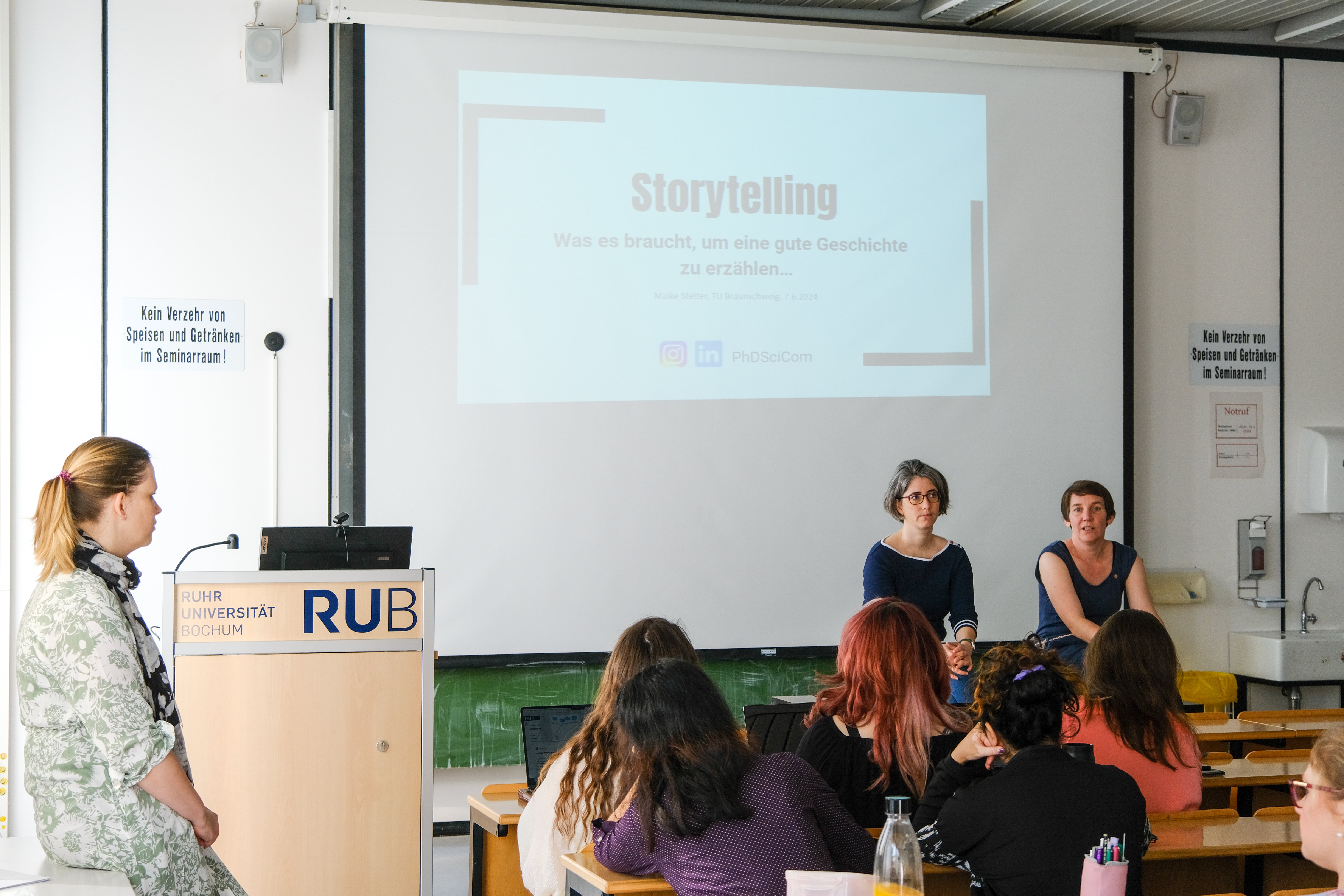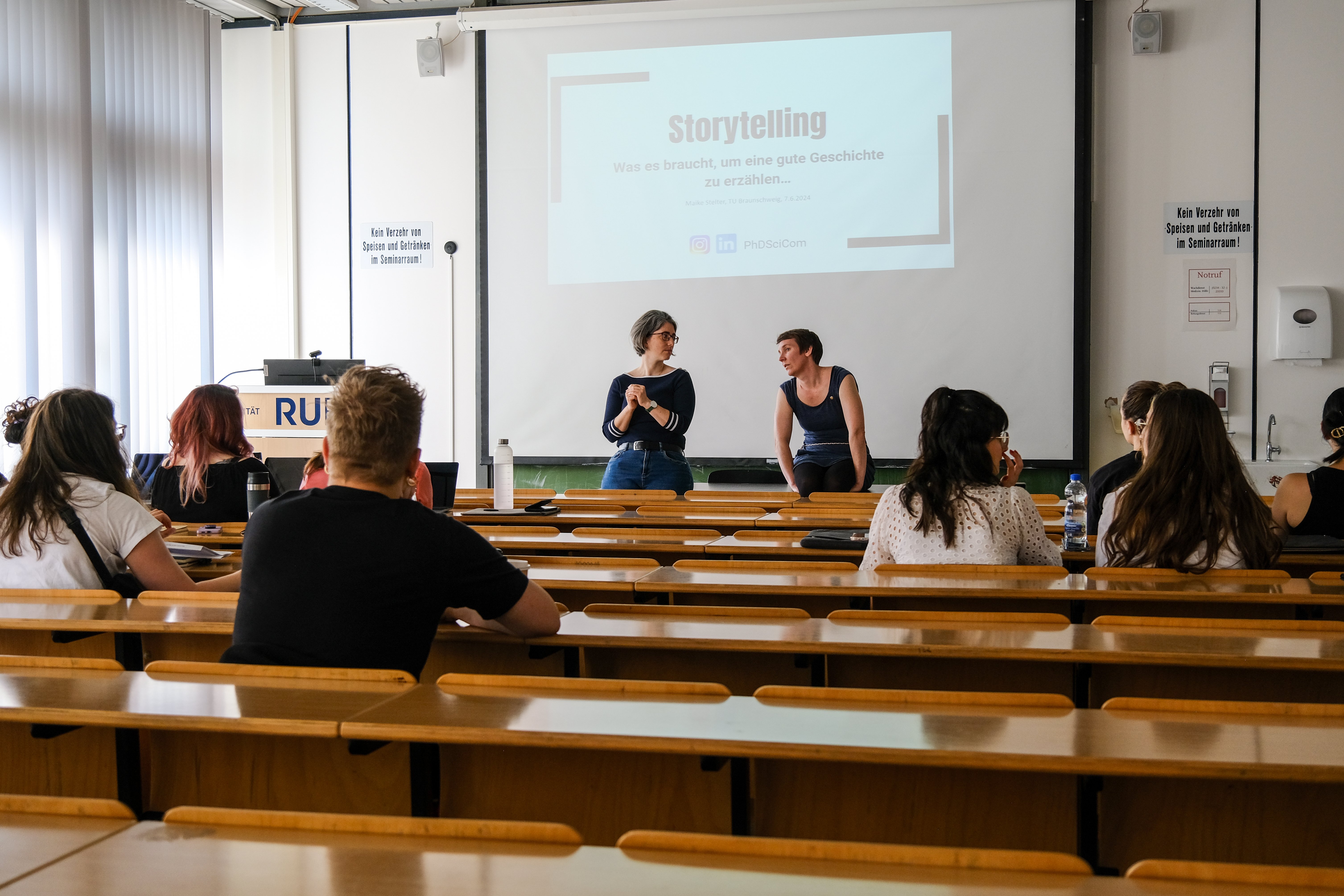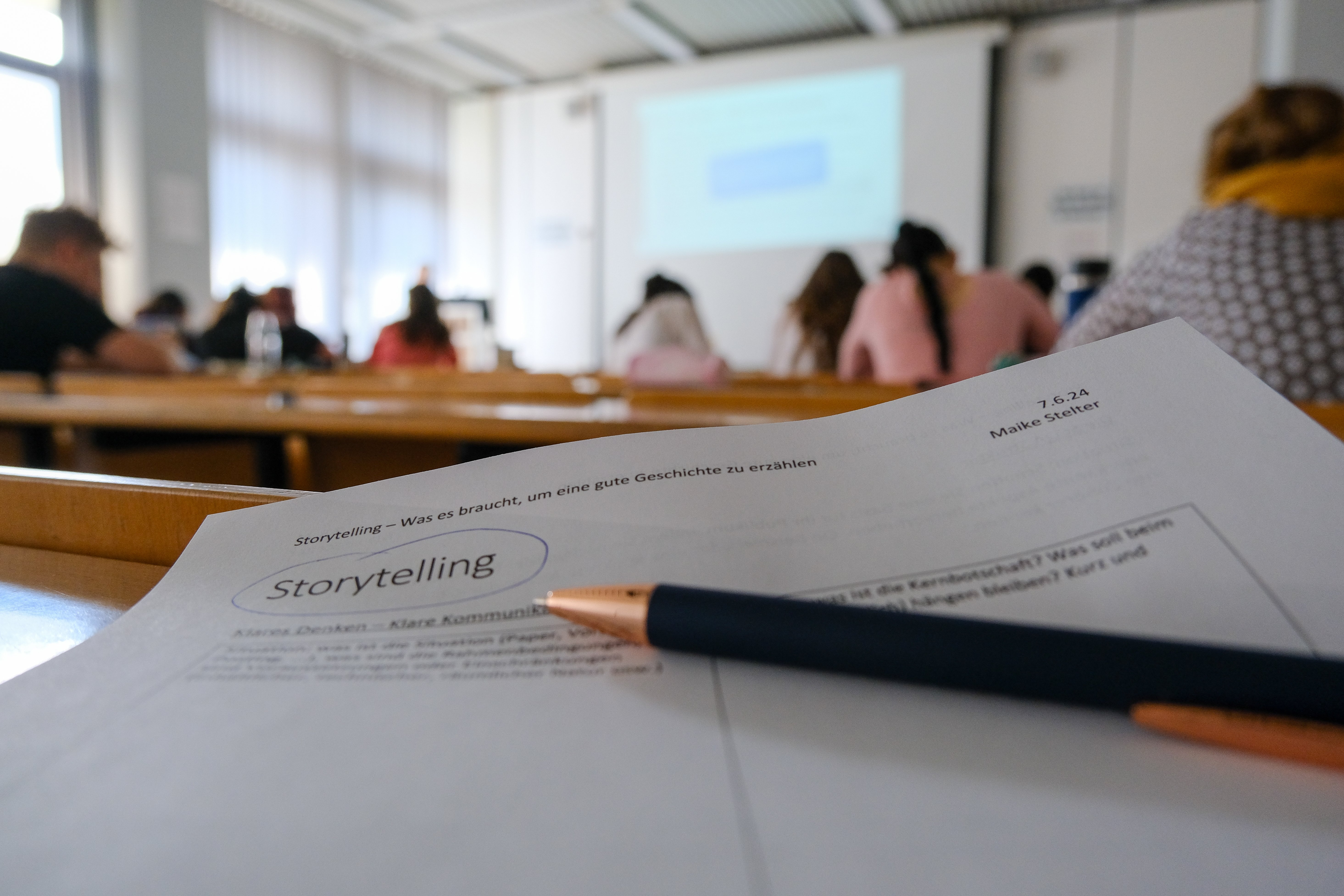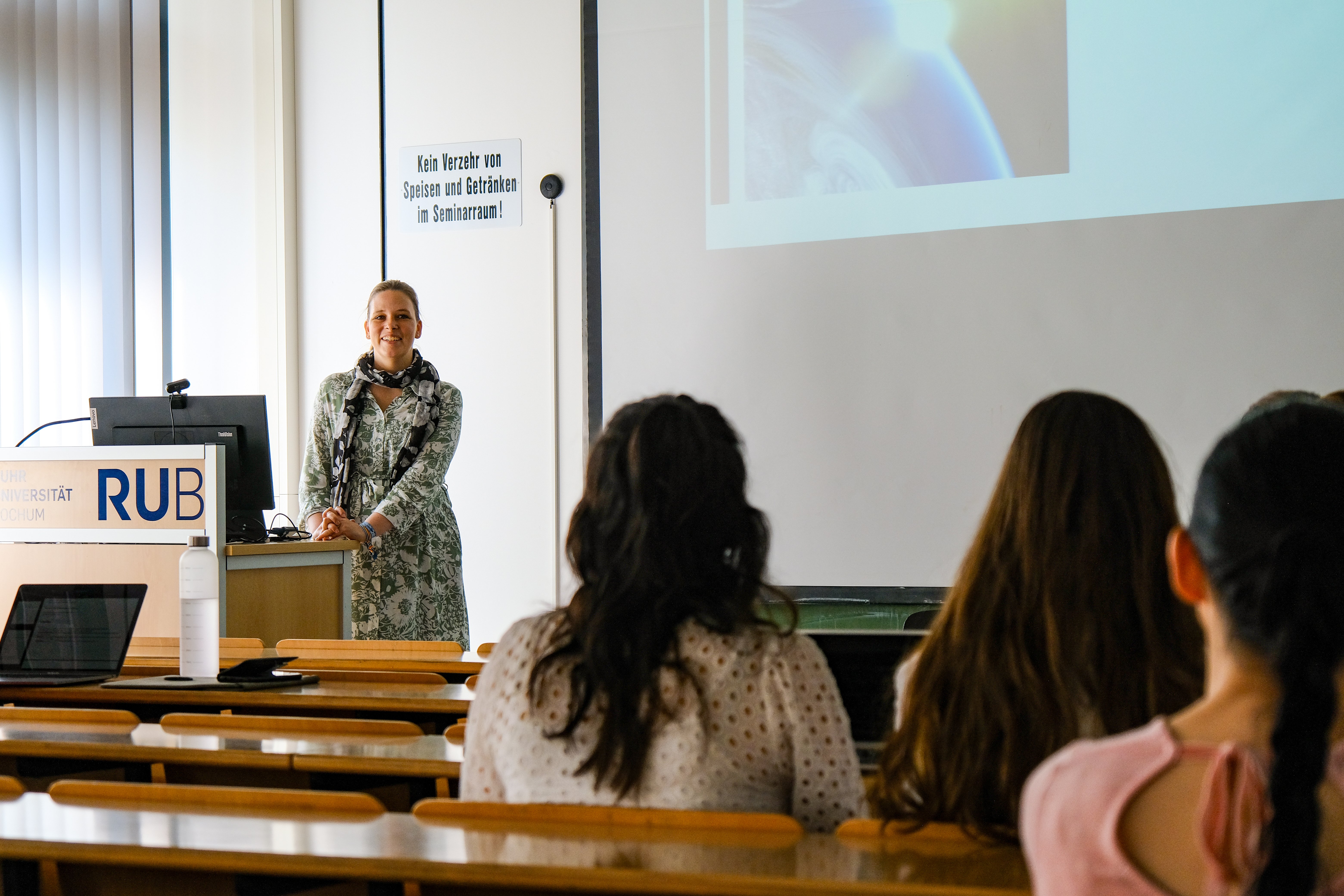
Interview with Anna Neumaier about the seminar on digital science communication in the summer semester 2024
Ms. Neumaier, what motivated you to offer a seminar on digital science communication?
Anna Neumaier: We - I ran the seminar together with Prof. Juliane Czierpka from the Department of History [Center of the picture, editor's note] - wanted to offer a seminar in which we looked at the opportunities and challenges of science communication. And we actually wanted to do this for three reasons: Firstly, this [science communication, editor's note] can later become a possible career field for students after graduation. Secondly, it is often an activity that is part of another profession, for example if you want to successfully communicate your own content as a scientist. And thirdly, regardless of this, it is generally a good exercise to learn how to communicate your own research - to break it down a little and make it simpler without losing the complexity of the content.
What topics were covered in the seminar?
Anna Neumaier: We first looked at the basics of science communication: Why do we do it at all, what is it actually? We then looked at certain practices and tools, such as storytelling, persona development and target group addressing, to see what work is involved. We also looked at the challenges and risks, in particular the dangers that arise when scientists get involved in digital science communication, for example on social media platforms. We then dealt with questions such as: What happens if I am hit by a shitstorm? How do I deal with trolls and so on?
What was special about the format of the seminar?
Anna Neumaier: Firstly, we invited some experienced practitioners, which was really helpful for us. They either took on their own parts of the workshop or were available to answer questions as panel guests and also brought along illustrative examples from practice. Secondly, the seminar was open to all RUB Master's students. When working together in small groups, the students always had to engage in science communication. They had to report on their subject and their research or their scientific context. That was also really interesting for us - I learned a lot about concrete, for example! [One student project (see below) was dedicated to the topic of concrete, editor's note].
What projects did the students develop and implement as part of the seminar?
Anna Neumaier: The students were asked to develop their own project, either alone or in small groups, in which they worked on a topic of their choice in the context of digital science communication. They worked on this over the course of the block days; in other words, they continued to work on their projects in coordination with the content of the block days. The results were really good: Some projects are very funny, others deal with important topics, topics of sustainability, topics of sexual self-determination and so on, which should actually be implemented comprehensively.
Why do you think digital science communication is so important?
Anna Neumaier: I personally think that it is part of the job of scientists to make their knowledge or expertise, their research results, accessible in such a way that they are really freely accessible, i.e. understandable and interesting for everyone. This is particularly important in the digital space.Because if you don't communicate it yourself, the topics are taken over by others who may not have the necessary knowledge or training. This then leads to completely different problems. And beyond this larger, perhaps ethical concern, it's also a good exercise to think about it:How can I break down my research just enough to capture the actual essence of what I have found out, the most important part of it, without losing the complexity?This is a common criticism: if you communicate science in this way, it becomes too simple, too basic.It doesn't have to be, but you have to think about it carefully beforehand, you have to practise it.
What was the students' feedback on the seminar?
Anna Neumaier: I think the students were initially happy that there was a course like this at all. Particularly with regard to the STEM subjects, we noticed that there are fewer offers like this or that there is less understanding of the need to communicate your own topics in an outreach manner and that you also need your own skills for this and that you have to learn them.Then I think it was really well received that the course was so practical and that we invited practitioners who you could ask questions and who shared their experiences.Of course, there are always things we would do differently next time, but that's normal when you're offering a course like this for the first time.It was definitely a lot of fun.I would do the course again at any time.
*The interview is based on a video interview that can be found on the CERES social media platforms.The text has been adapted to the written format, which is why some formulations differ.





